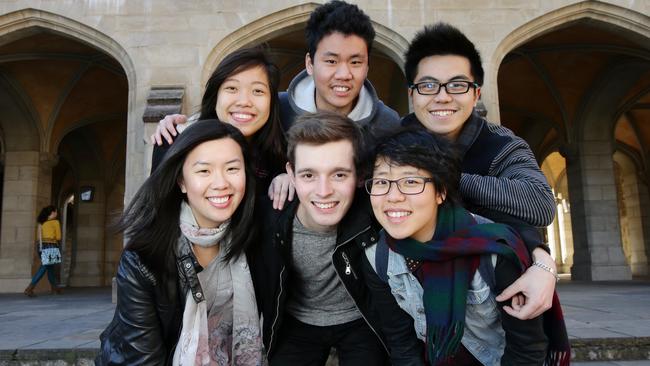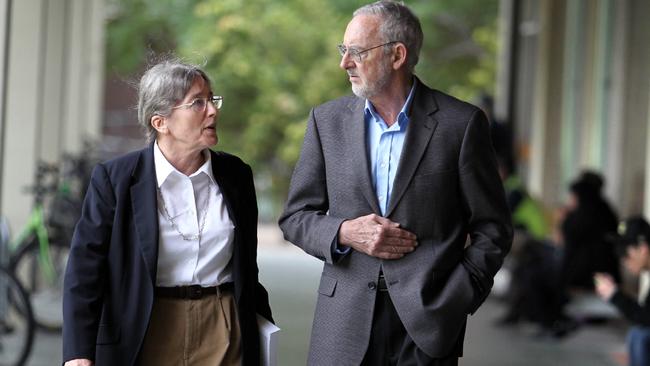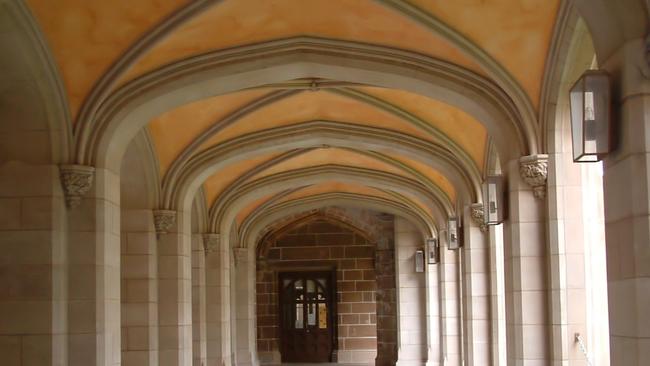Questions over viability of $30b overseas student industry
Australia gets huge export dollars from the hundreds of thousands of overseas students who attend universities here. But a new report is questioning the viability of the foreign student industry.
VIC News
Don't miss out on the headlines from VIC News. Followed categories will be added to My News.
Australia’s $30 billion overseas student industry is distorting the higher education system and causing social downsides, says a new report.
The study found that more than a third of all commencing students at key universities like Melbourne and Monash are foreigners, mainly from China.
And overseas students are responsible for a big chunk of the rapidly rising population in Melbourne and Sydney due to net overseas migration.
OVER 55,000 FOREIGN STUDENT VISAS CANCELLED IN FOUR-YEAR PERIOD
OVERSEAS STUDENTS AMONG MAIN CONTRIBUTORS TO MIGRANT NUMBERS
GOVERNMENT SELLS SCHOOL SPOTS TO OVERSEAS STUDENTS

But the universities have hit back, claiming the report misrepresents one of the world’s most successful and appealing international education sectors.
As of August this year, there were 640,362 international students here, with China, India, Nepal, Malaysia and Brazil the top source countries.
The Australian Population Research Institute report revealed that Chinese students dominate foreign enrolments in the nation’s top tier, or Group of 8 universities, because they are rated among the world’s top 100 institutions.
“There is much to admire in their achievement ... but this success has been achieved to the neglect of their teaching effort as well as neglect of any moves toward vocational-education and industry-oriented research,” it said.

Report authors Dr Bob Birrell and Dr Katharine Betts said that the Go8 universities were primarily catering for Chinese students with weak English skills doing two-year masters courses.
“The universities have had to adjust their teaching and assessment to the capabilities of these students. For this reason they do not produce highly trained professionals,” they said.
The authors warned that the universities’ financial dependence on Chinese students was threatened by China’s pursuit of its geopolitical agenda, and it was shaping Australia’s foreign policy.
“The Coalition government’s statement in 2018 that it would not seek to contain China in its geopolitical conflict with the US in the Indo-Pacific, appears to have been a direct result of university lobbying,” the report said.

The authors said that non-Go8 universities were also vulnerable, because they tended to attract overseas students who wanted to stay permanently in Australia.
“However, as a result of immigration reforms ... it is now far more difficult to access a permanent residence or a long-stay temporary work visa,” the report said.
Dr Birrell and Dr Betts said the overseas student industry should be removed from its pedestal, and its priorities balanced against the downsides.
They said a big downside was the population pressure and congestion contributed to by foreign students.
They accounted for nearly a third of the 90,010 people added to Victoria’s population in 2016-17 due to net overseas migration.
Universities Australia Chief Executive Catriona Jackson accused the authors of misrepresenting a highly successful international education sector.
“Australian universities safeguard quality and standards not only because they are inherently important to all that we do — but also because high quality and high standards are what attract international students,” she said.
“Far from lowering standards, a competitive and successful international education sector delivers quality for all students.”
Ms Jackson said that the sector regulator’s latest report showed that 90 per cent of international students were satisfied with the quality of their education and study experience in Australia.
Ms Jackson said the federal government’s English language standards were much the same as leading higher education systems around the world, including the US and the UK.
“And many universities have standards for particular courses that go above the minimum standards under these visa conditions,” she said.


